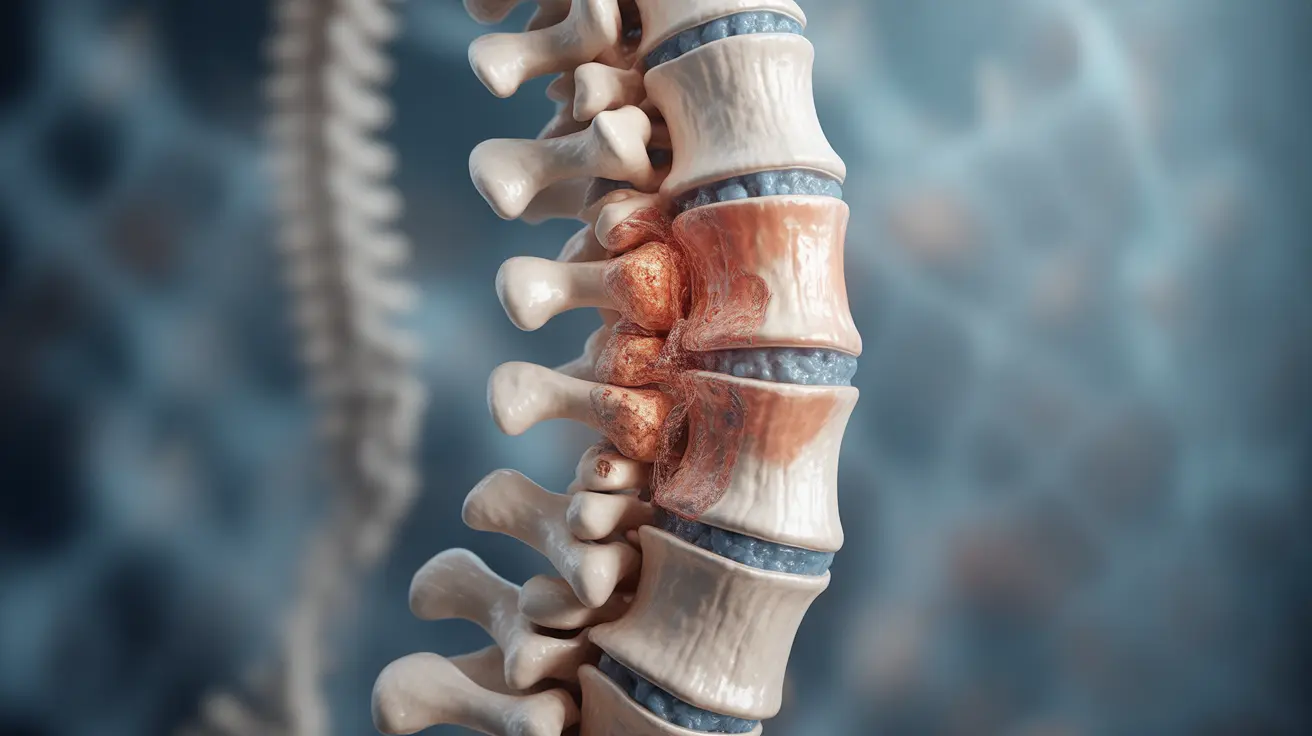Back pain is a common symptom that affects millions of people, but when it occurs in men with prostate cancer, it requires special attention. Understanding the relationship between prostate cancer and back pain is crucial for early detection and proper treatment. This article explores how prostate cancer can cause back pain, what symptoms to watch for, and when to seek medical attention.
How Prostate Cancer Affects the Back
Prostate cancer can cause back pain primarily when it spreads (metastasizes) to the bones, particularly the spine. This typically occurs in advanced stages of the disease, making it an important warning sign that shouldn't be ignored. The cancer cells can weaken the bone structure, leading to pain and potential complications.
Common Locations of Pain
When prostate cancer spreads to the bones, pain commonly occurs in:
- Lower back
- Upper back
- Hip bones
- Ribs
- Shoulder blades
Distinguishing Features of Cancer-Related Back Pain
Back pain caused by prostate cancer often has distinct characteristics that set it apart from typical mechanical back pain. The pain tends to be:
- Persistent and gradually worsening
- Present even at rest
- More severe at night
- Accompanied by other symptoms
- Unrelated to physical activity or position changes
Warning Signs and Associated Symptoms
Besides back pain, several other symptoms may indicate prostate cancer has spread to the bones:
- Unexplained weight loss
- Fatigue
- Difficulty urinating
- Blood in urine
- Weakness or numbness in legs
- Hip pain
- Erectile dysfunction
Diagnostic Process
When back pain raises concerns about prostate cancer, doctors typically employ several diagnostic tools:
- PSA (Prostate-Specific Antigen) blood tests
- Bone scans
- MRI imaging
- CT scans
- Bone biopsies when necessary
Treatment Approaches
Managing back pain caused by prostate cancer involves a comprehensive treatment plan that may include:
- Targeted radiation therapy
- Pain management medications
- Hormone therapy
- Chemotherapy
- Bone-strengthening medications
- Physical therapy
- Surgery in some cases
Frequently Asked Questions
Can prostate cancer cause back pain and what are the common symptoms to watch for?
Yes, prostate cancer can cause back pain, particularly when it spreads to the bones. Common symptoms include persistent pain that worsens at night, difficulty urinating, fatigue, and unexplained weight loss.
How does prostate cancer spread to the bones and lead to back pain?
Prostate cancer cells can travel through the bloodstream or lymphatic system to reach the bones, particularly the spine. These cancer cells can weaken the bone structure and cause pain by disrupting normal bone maintenance and triggering inflammation.
When should I see a doctor if I have persistent back pain and am at risk for prostate cancer?
Seek medical attention if you experience persistent back pain that doesn't improve with rest, especially if you're over 50, have a family history of prostate cancer, or experience additional symptoms like urinary problems or unexplained weight loss.
What tests are used to diagnose bone metastases from prostate cancer causing back pain?
Doctors typically use a combination of PSA blood tests, bone scans, MRI imaging, and CT scans to diagnose bone metastases. In some cases, a bone biopsy may be necessary for confirmation.
What treatment options are available to manage back pain caused by prostate cancer spreading to the bones?
Treatment options include targeted radiation therapy, pain medications, hormone therapy, chemotherapy, bone-strengthening medications, and in some cases, surgery. The approach is typically personalized based on the extent of disease and individual patient factors.




